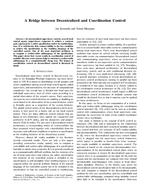Inproceedings3000: Unterschied zwischen den Versionen
Aus International Center for Computational Logic
Tomas Masopust (Diskussion | Beiträge) Keine Bearbeitungszusammenfassung |
Markus Krötzsch (Diskussion | Beiträge) K (Textersetzung - „|Forschungsgruppe=Knowledge Systems“ durch „|Forschungsgruppe=Wissensbasierte Systeme“) |
||
| (4 dazwischenliegende Versionen von 2 Benutzern werden nicht angezeigt) | |||
| Zeile 1: | Zeile 1: | ||
{{Publikation Erster Autor | {{Publikation Erster Autor | ||
|ErsterAutorVorname=Jan | |||
|ErsterAutorNachname=Komenda | |ErsterAutorNachname=Komenda | ||
| | |FurtherAuthors=Tomáš Masopust | ||
}} | }} | ||
{{Inproceedings | {{Inproceedings | ||
| Zeile 13: | Zeile 10: | ||
|Year=2013 | |Year=2013 | ||
|Booktitle=Proc. of 51st Annual Allerton Conference on Communication, Control, and Computing (Allerton) | |Booktitle=Proc. of 51st Annual Allerton Conference on Communication, Control, and Computing (Allerton) | ||
|Pages=966 - 972 | |Pages=966-972 | ||
|Publisher=IEEE | |Publisher=IEEE | ||
}} | }} | ||
| Zeile 19: | Zeile 16: | ||
|Abstract=In decentralized supervisory control, several local control agents (supervisors) cooperate to achieve a common goal, expressed by a safety specification and/or by nonblockingness. It is well-known that coobservability is the key condition to achieve the specification as the resulting language of the controlled system. One of the most important problems is to compute a coobservable sublanguage of the specification. This paper shows how recent results in coordination control of modular discrete-event systems help to construct a coobservable sublanguage in a computationally cheap way. The impact of coordination control on decentralized control is discussed in detail. | |Abstract=In decentralized supervisory control, several local control agents (supervisors) cooperate to achieve a common goal, expressed by a safety specification and/or by nonblockingness. It is well-known that coobservability is the key condition to achieve the specification as the resulting language of the controlled system. One of the most important problems is to compute a coobservable sublanguage of the specification. This paper shows how recent results in coordination control of modular discrete-event systems help to construct a coobservable sublanguage in a computationally cheap way. The impact of coordination control on decentralized control is discussed in detail. | ||
|ISBN=978-1-4799-3409-6 | |ISBN=978-1-4799-3409-6 | ||
|Download=A bridge between decentralized and coordination control.pdf | |||
|DOI Name=10.1109/Allerton.2013.6736630 | |DOI Name=10.1109/Allerton.2013.6736630 | ||
|Forschungsgruppe= | |Forschungsgruppe=Wissensbasierte Systeme | ||
}} | }} | ||
Aktuelle Version vom 24. Mai 2016, 18:00 Uhr
A bridge between decentralized and coordination control
Jan KomendaJan Komenda, Tomáš MasopustTomáš Masopust
Jan Komenda, Tomáš Masopust
A bridge between decentralized and coordination control
Proc. of 51st Annual Allerton Conference on Communication, Control, and Computing (Allerton), 966-972, 2013. IEEE
A bridge between decentralized and coordination control
Proc. of 51st Annual Allerton Conference on Communication, Control, and Computing (Allerton), 966-972, 2013. IEEE
- KurzfassungAbstract
In decentralized supervisory control, several local control agents (supervisors) cooperate to achieve a common goal, expressed by a safety specification and/or by nonblockingness. It is well-known that coobservability is the key condition to achieve the specification as the resulting language of the controlled system. One of the most important problems is to compute a coobservable sublanguage of the specification. This paper shows how recent results in coordination control of modular discrete-event systems help to construct a coobservable sublanguage in a computationally cheap way. The impact of coordination control on decentralized control is discussed in detail. - Forschungsgruppe:Research Group: Wissensbasierte SystemeKnowledge-Based Systems
@inproceedings{KM2013,
author = {Jan Komenda and Tom{\'{a}}{\v{s}} Masopust},
title = {A bridge between decentralized and coordination control},
booktitle = {Proc. of 51st Annual Allerton Conference on Communication,
Control, and Computing (Allerton)},
publisher = {IEEE},
year = {2013},
pages = {966-972},
doi = {10.1109/Allerton.2013.6736630}
}
